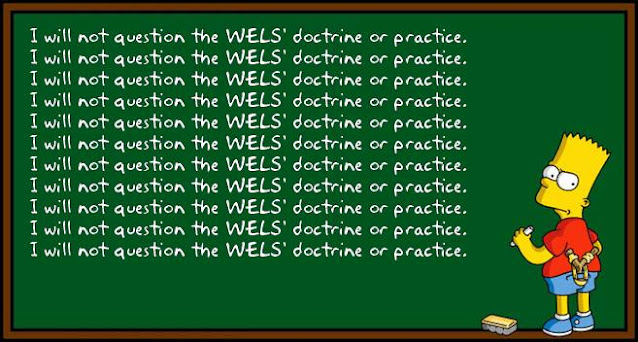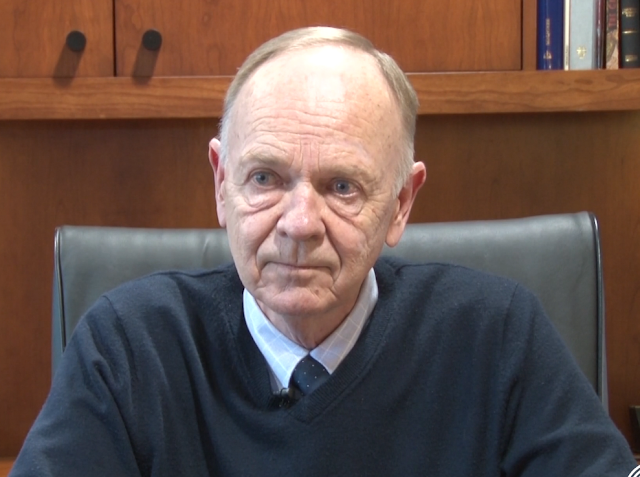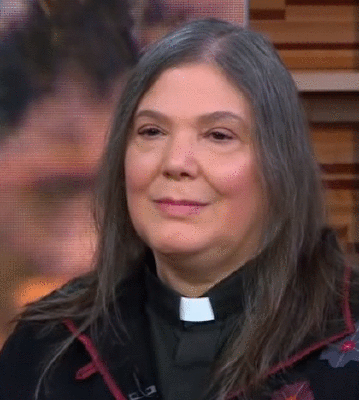The Eighth Sunday after Trinity 2020
Pastor Gregory L. Jackson
The melodies are linked in the hymn titles.
The lyrics are linked in the hymn number.
The Confession of Sins
The Absolution
The Introit p. 16
We have thought of Thy loving-kindness, O God:
in the midst of Thy Temple.
According to Thy name, O God,
so is Thy praise unto the ends of the earth:
Thy right hand is full of righteousness.
Psalm. Great is the Lord and greatly to be praised:
in the city of our God, in the mountain of His holiness.
The Gloria Patri
The Kyrie p. 17
The Gloria in Excelsis
The Salutation and Collect p. 19
Grant to us, Lord, we beseech Thee, the Spirit to think and do always such things as are right, that we, who cannot do anything that is good without Thee, may by Thee be enabled to live according to Thy will; through Jesus Christ, Thy Son, our Lord, Who liveth...
The Epistle and Gradual
Be Thou my strong Rock: for an house of defense to save me.
V. In Thee, O Lord, do I put my trust:
let me never be ashamed. Hallelujah! Hallelujah!
V. Give ear, O My people, to My Law:
incline your ears to the words of My mouth. Hallelujah!
The Gospel
Glory be to Thee, O Lord!
Praise be to Thee, O Christ!
The Nicene Creed p. 22
The Bad News Highlights the Good News
The Preface p. 24
The Sanctus p. 26
The Lord's Prayer p. 27
The Words of Institution
The Agnus Dei p. 28
The Nunc Dimittis p. 29
The Benediction p. 31
The Hymn #511 Jesus Shall Reign
In Our Prayers
- The flowers are in honor of Great-Grandmother Alicia Meyer.
- Zach's mother, Anita Engleman, had a fall but is better.
- Christina Jackson; Pastor Jim Shrader and Chris Shrader; Kermit and Marie Way.
- Our country's leaders as justice is served to the criminals and traitors. Over 60,000 indictments.
KJV Romans 8:12 Therefore, brethren, we are debtors, not to the flesh, to live after the flesh. 13 For if ye live after the flesh, ye shall die: but if ye through the Spirit do mortify the deeds of the body, ye shall live. 14 For as many as are led by the Spirit of God, they are the sons of God. 15 For ye have not received the spirit of bondage again to fear; but ye have received the Spirit of adoption, whereby we cry, Abba, Father. 16 The Spirit itself beareth witness with our spirit, that we are the children of God: 17 And if children, then heirs; heirs of God, and joint-heirs with Christ; if so be that we suffer with him, that we may be also glorified together.
KJV Matthew 7:15 Beware of false prophets, which come to you in sheep's clothing, but inwardly they are ravening wolves. 16 Ye shall know them by their fruits. Do men gather grapes of thorns, or figs of thistles? 17 Even so every good tree bringeth forth good fruit; but a corrupt tree bringeth forth evil fruit. 18 A good tree cannot bring forth evil fruit, neither can a corrupt tree bring forth good fruit. 19 Every tree that bringeth not forth good fruit is hewn down, and cast into the fire. 20 Wherefore by their fruits ye shall know them. 21 Not every one that saith unto me, Lord, Lord, shall enter into the kingdom of heaven; but he that doeth the will of my Father which is in heaven. 22 Many will say to me in that day, Lord, Lord, have we not prophesied in thy name? and in thy name have cast out devils? and in thy name done many wonderful works? 23 And then will I profess unto them, I never knew you: depart from me, ye that work iniquity.
Eighth Sunday After Trinity
Lord God, heavenly Father, we most heartily thank Thee that Thou hast caused us to come to the knowledge of Thy word. We pray Thee: graciously keep us steadfast in this knowledge unto death, that we may obtain eternal life; send us now and ever pious pastors, who faithfully preach Thy word, without offense or false doctrine, and grant them long life. Defend us from all false teachings, and frustrate Thou the counsels of all such as pervert Thy word, who come to us in sheep's clothing, but are inwardly ravening wolves, that Thy true Church may evermore be established among us, and be defended and preserved from such false teachers, through Jesus Christ, Thy Son, who liveth and reigneth with Thee and the Holy Ghost, one true God, world without end. Amen.
The Bad News Highlights the Good News
Introductory, Matthew 7:15ff.
Seldom do the experts identify the real cause of the Reformation and the reasons for the violent reaction of the Church of Rome. The answer is here in this lesson for Trinity 8. Luther did not discover the Gospel, since he had mentors who also taught the Gospel. The Waldensians were Biblical teachers for centuries. John Hus also taught the Gospel, a century before Luther.
Luther taught clearly what Jesus taught in the Sermon on the Mount - defining the Gospel in a positive way and condemning falsehoods and perversions of the Gospel. The second part - attacking false doctrine - put Jesus Christ and Luther in twin categories of public enemy and the enemy of religion. Both kinds of doctrine must be taught together, or the division between sound and false teaching will disappear - along with the truth. The good tree is the tree of faith, and the corrupt tree is the tree of no faith.
KJV Matthew 7:15 Beware of false prophets, which come to you in sheep's clothing, but inwardly they are ravening wolves.
This is certainly one of the best known passages in the Bible, and it is even acted out in other ways. Someone evil is outside the building and wants to come in, but he cloaks himself with soothing, gentle, flattering words because no one would open the door for someone so dangerous.
This is already a precarious position, because the person who discerns the false prophet alarms those who are still snoozing. Every effort to address the false teacher's doctrine will not only alert the wolf to danger but also make the gentle sheep disturbed against someone who tells the truth.
These words, paraphrased, addressed to someone else, came from a District Pope, WELS - "I am sorry to see that you have abandoned the teaching you learned from your professors." Not - abandoned the Scriptures. Not - abandoned the Lutheran Reformation. Not - abandoned the Book of Concord. But abandoned the teaching of some men, who are thus placed in a higher category than the Scriptures, the Reformation, and the Book of Concord. That kind of lupine logic is calculated to rouse those professors to anger...more letters to follow. And then there are the many relatives who jump in to defend the professors ("My dear Uncle Fritz, whose weak heart cannot bear this infamy...")
However, the sound and the false doctrine must be taught together, because the Gospel cannot be what it is unless the anti-Gospel is also taught. That is why Luther's doctrine took hold and divided Europe, because right and wrong, healthy and poisonous were defined together.
False prophets never dress as wolves but camouflage themselves with soft speech, big smiles, and little sparks of veiled anger against the person who discerns the truth.
16 Ye shall know them by their fruits. Do men gather grapes of thorns, or figs of thistles?
Gardeners and farmers know this well - wherever good plants are growing well, weeds are growing even better. Weeds not only imitate sound, fruitful plants, but they also place themselves in the middle of a hybrid tea rose, with the help of birds and squirrels. Weeds will either flourish from shallow weed growth or send tap roots deep down. They may have tiny leaves but enough of them to cover and choke the plant. But one thing they lack - fruit. They develop seeds by the thousands so they can easily replace a garden set up to be organic, free of toxins, and bathing in the perfect balance of sunlight and shade. Their fruit and seeds are sterile because they are plentiful except in the categories of beauty and food value. No one wants a bag of weed seed. One reader once took on the task of removing a toxic weed, which landed him in the hospital.
Verse 16 alone should keep people from imitating false doctrine and practices that seem appealing to others. They judge from the outside, which is considered a major sin in the New Testament. The old term is "respecter of persons" but it means, more literally, judging from appearances. Rank weed growth is a reason to avoid the thorns and thistles.
17 Even so every good tree bringeth forth good fruit; but a corrupt tree bringeth forth evil fruit.
This Creation comparison should be obvious to everyone, which says a lot about the denominational and Catholic leadership trundling off to various training academies that told everyone "This will work in any denomination." One reader translated that as "This will fail in any denomination."
So verse 17 is the opposite of judging by appearances. A good, healthy source - the Scriptures - will always bring forth fruit in God's time and will prosper His will.
I have had that experience many times in gardening. There was no immediate benefit and I felt disappointment. But living, healthy roots have a way of producing the plant much later and blooming even later. Lilies and Monarch butterfly plants do not pop up easily, but the long build-up is impressive when the results are obvious.
In the Christian Faith, the fruits are experienced in future generations, over years and decades. Forgiveness strengthens the bonds and show us how God works through the Gospel.
I am convinced from teaching the Old Testament that too many Evangelicals think they are paying back for sins by constant regretting and confessing. It is oddly similar to the Catholic dogma of reparations (repayment) - I have done wrong so I must pay, over and over, and into eternity, where Purgatory awaits. Luther says - look forward, not backward. Forward is thankfulness for grace and forgiveness through faith in Jesus Christ. Bringing up the past is not edifying and not the purpose of the Gospel.
18 A good tree cannot bring forth evil fruit, neither can a corrupt tree bring forth good fruit.
This should straighten out people who find the Lutheran liturgy, readings, and Creeds, and hymns to be "ineffective." Whatever is in harmony with the Word of God is effective, so no sugar coating or dilution is needed.
This is also true of us. Those who are sincere believers will bear fruit, and the greatest celebrities - lacking faith - will produce nothing but evil fruit.
19 Every tree that bringeth not forth good fruit is hewn down, and cast into the fire. 20 Wherefore by their fruits ye shall know them.
The view in retrospect is quite different from what was promised by the wolves, their weed farms, and their hedges made from thistles. I have kept a photo of the largest Methodist church in America - empty and unused. Maybe someone bid for it under liquidation. That had to have been impressive on its dedication day, so many hopes, so many bills to pay.
The same is true of false teachers. If they sold their personalities to the public, to prove why their congregation grew, they got that slapped back into their faces fairly soon.
21 Not every one that saith unto me, Lord, Lord, shall enter into the kingdom of heaven; but he that doeth the will of my Father which is in heaven. 22 Many will say to me in that day, Lord, Lord, have we not prophesied in thy name? and in thy name have cast out devils? and in thy name done many wonderful works? 23 And then will I profess unto them, I never knew you: depart from me, ye that work iniquity.
This part of the Sermon on the Mount takes care of those who parade their piety and high-cost clothing to impress others. What makes the biggest splash in our society is what offends the Savior.












































